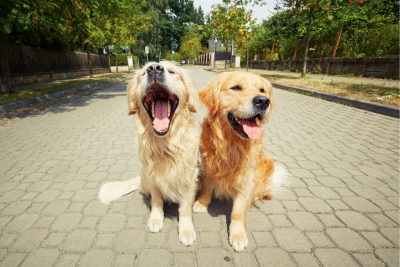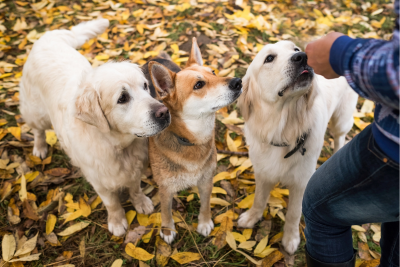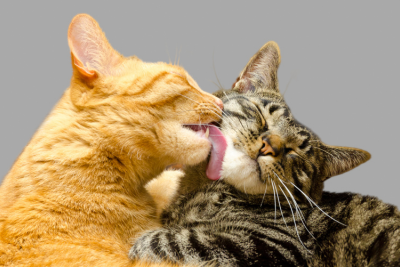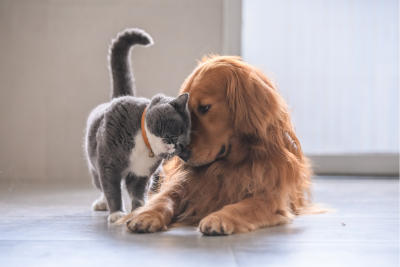Disclosure: Some articles on this site may contain affiliate links, meaning, at non additional cost to you, Chicago Urban Pets may earn a commission if you click through and make a purchase. As an Amazon Associate we earn from qualifying purchases.
Socializing your pets is a vital aspect of responsible pet ownership, fostering not only harmonious relationships within the household but also contributing to the overall well-being of our four-legged companions. The process of socialization, which involves exposing pets to various people, animals, and environments from a young age, is a crucial component of their development.
In this article, we will delve into the importance of socialization, exploring how it positively influences pets’ behavior and quality of life. We will also provide practical tips on how to effectively socialize your pets, and discuss common challenges and misconceptions associated with this process.
What is Socialization?

Socialization is the process through which pets are exposed to a variety of people, animals, places, and experiences in a positive manner. It allows them to become familiar with their surroundings, develop social skills, and adapt to new situations. It not only helps prevent behavioral problems like aggression and excessive fear but also enhances their overall well-being. Moreover, well-socialized pets tend to be more confident and better equipped to handle the myriad of situations they may encounter throughout their lives.
You Might Also Be Interested In:
- When Should I Hire a Trainer for My Dog’s Separation Anxiety?
- Steps on Helping Your Dog with Separation Anxiety
- How to Stop Leash Pulling
The importance of socialization for pets spans their entire life span. In the early stages, during puppyhood and kittenhood, it is crucial for establishing a strong foundation for their future behavior. However, socialization is not limited to young animals. It remains essential throughout their adult years and even into old age, as continued exposure to new experiences and environments helps to keep their social skills sharp and their adaptability intact.
It’s worth noting that socialization is distinct from training, although they often go hand in hand. Training focuses on teaching specific commands and behaviors, while socialization is broader in scope, aimed at ensuring pets are comfortable and well-adjusted in various social situations.
How to Socialize My Dog?

When it comes to socializing puppies, early and positive exposure is key. Start by introducing them to various people, dogs, and environments during their critical socialization period, which typically spans from 3 to 14 weeks of age. Make sure the interactions are positive and non-threatening, using treats, praise, and play to reinforce good behavior. Puppy classes and playdates with other well-socialized dogs are excellent opportunities for controlled socialization.
For shy or anxious dogs, socialization should be tailored to their comfort level. Begin by exposing them to low-stress, low-traffic environments. Providing a safe space, such as a crate or quiet room, where they can retreat when feeling overwhelmed, is crucial. Consultation with a professional dog trainer or behaviorist experienced in working with shy or anxious dogs can be extremely beneficial to design a personalized socialization plan.
Puppy Socialization Classes in Chicago
- Paws Chicago Polite and Playful Puppy Class
- Urban Pooch Puppy Training Class
- Tucker Pups Pet Resort Puppy Socials
- SplootVets Puppy Clinic 101

If you’re based in Chicago, we recommend Green Paws Chicago for compassionate, professional dog walking. They’re a trusted local service that helps your dog stay active and social even while you’re away.
(When signing up, don’t forget to mention Chicago Urban Pets to support the blog and help us continue creating helpful content.)
How to Socialize My Cat?

The early weeks of a kitten’s life are a critical window for socialization, typically occurring between 2 to 7 weeks of age. During this time, kittens should be exposed to a variety of positive experiences, such as gentle handling, play, and interaction with other cats and humans. This early socialization helps them develop strong bonds with people, learn appropriate play behaviors, and adapt to various environments. It can prevent fearful or aggressive behavior in adulthood, making them better companions for their human families.
When it comes to adult cats, socialization may be necessary for those who were not adequately socialized as kittens or have experienced trauma or neglect. Patience and a gradual approach are essential. Create a calm and predictable environment, using treats and gentle play to encourage positive interactions. Provide safe hiding spaces and vertical territory like cat trees to help them feel secure. Slowly introduce them to new experiences, people, and other animals while respecting their boundaries.
Some cats may have a natural predisposition towards shyness or fear, making socialization more complex. It’s essential to be prepared for setbacks and recognize that progress may be slow. Remember that adult cats, like all animals, have their own unique personalities, and the goal of socialization is to help them live comfortably and confidently within their own limits.
Being a Responsible Pet Parent

Socialization is a vital component of responsible pet ownership for both dogs and cats. Early socialization is crucial for puppies and kittens, as it sets the foundation for well-adjusted, confident, and sociable adult animals. Exposing young pets to a variety of positive experiences helps prevent behavioral problems and fosters adaptability.
For adult dogs and cats, socialization is still important, but it may require patience and a tailored approach, especially for those with difficult pasts or naturally shy temperaments. The key to successful socialization lies in gradual exposure, positive reinforcement, and respect for individual boundaries, recognizing that each pet has its unique personality and comfort level. Ultimately, socialization contributes to the well-being of our beloved animal companions, ensuring they live happy, fulfilling lives as cherished members of our households.


If you’re based in Chicago, we recommend Green Paws Chicago for compassionate, professional dog walking. They’re a trusted local service that helps your dog stay active and social even while you’re away.
(When signing up, don’t forget to mention Chicago Urban Pets to support the blog and help us continue creating helpful content.)




Great advice, socialization is indeed crucial for a dog’s development and well-being.